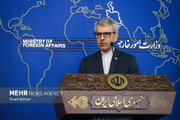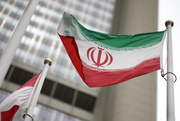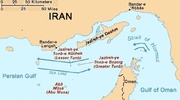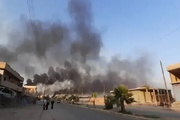Ansarullah spokesman Mohammed Abdul-Salam, in a post published on X social media platform, reiterated that Yemeni Armed Forces will continue their maritime operations to pressure Israel into ending its aggression on people in Gaza and to end its blockade there.
His remarks came hours after the United States and the United Kingdom carried out a new wave of attacks on Yemen.
“The latest US strikes on the Yemeni capital Sana’a are a continuation of the attacks being carried out by the United States and Britain in support of Israel. These strikes embolden the occupying Zionist regime to forge ahead with its brutal crimes against Palestinians in Gaza," Abdul-Salam said.
“These aggressive attacks will never prevent the Yemeni nation and military from conducting attacks against Israeli-affiliated commercial vessels and ships destined to ports in the Israeli-occupied territories.”
Yemen's official Saba news agency reported that the US-British coalition launched five airstrikes against targets in the al-Munirah district of the western coastal province of Hudaydah. There were no immediate reports about the extent of damage and possible casualties.
The US and UK military forces also carried out four strikes against Attan area in the al-Wahdah district, two attacks against al-Nahdin area in the as-Sabain district and three strikes on Jarban area in the Sanhan district of the capital province.
Yemen has been conducting missile and drone operations against Israeli vessels, those heading for Israeli ports, and the British and American warships that have been dispatched to the Red Sea to confront the Yemeni strikes.
The Red Sea operations began when Israel launched its devastating war on Gaza after the territory’s Palestinian resistance movements carried out the surprise Operation Al-Aqsa Storm into the occupied territories.
The strikes have been seeking to pressure the Israeli regime into stopping its war against Gaza which has so far killed at least 32,070 Palestinians. Another 74,298 individuals have sustained injuries as well.
The maritime attacks have forced some of the world’s biggest shipping and oil companies to suspend transit through one of the world’s most important maritime trade routes.
Tankers are instead adding thousands of miles to international shipping routes by sailing around the continent of Africa rather than going through the Suez Canal.
MNA/Press TV


























Your Comment